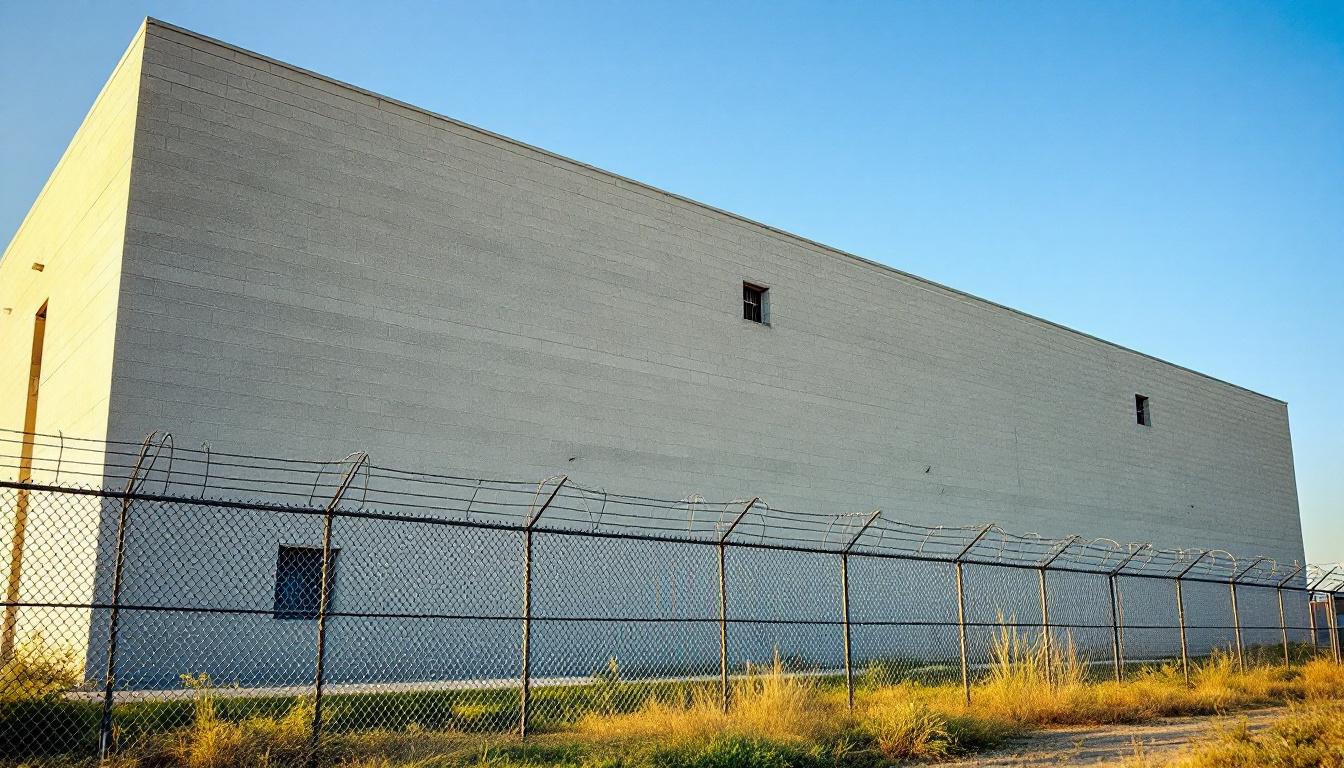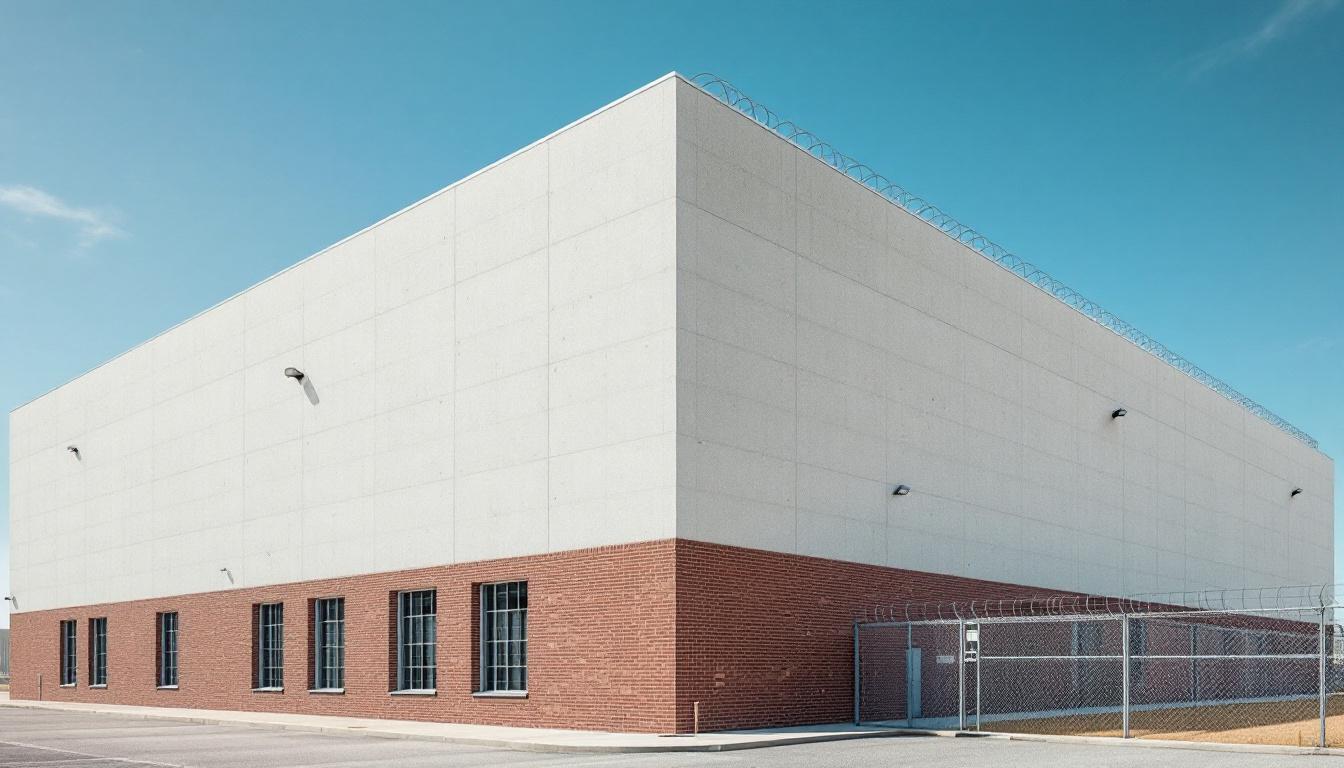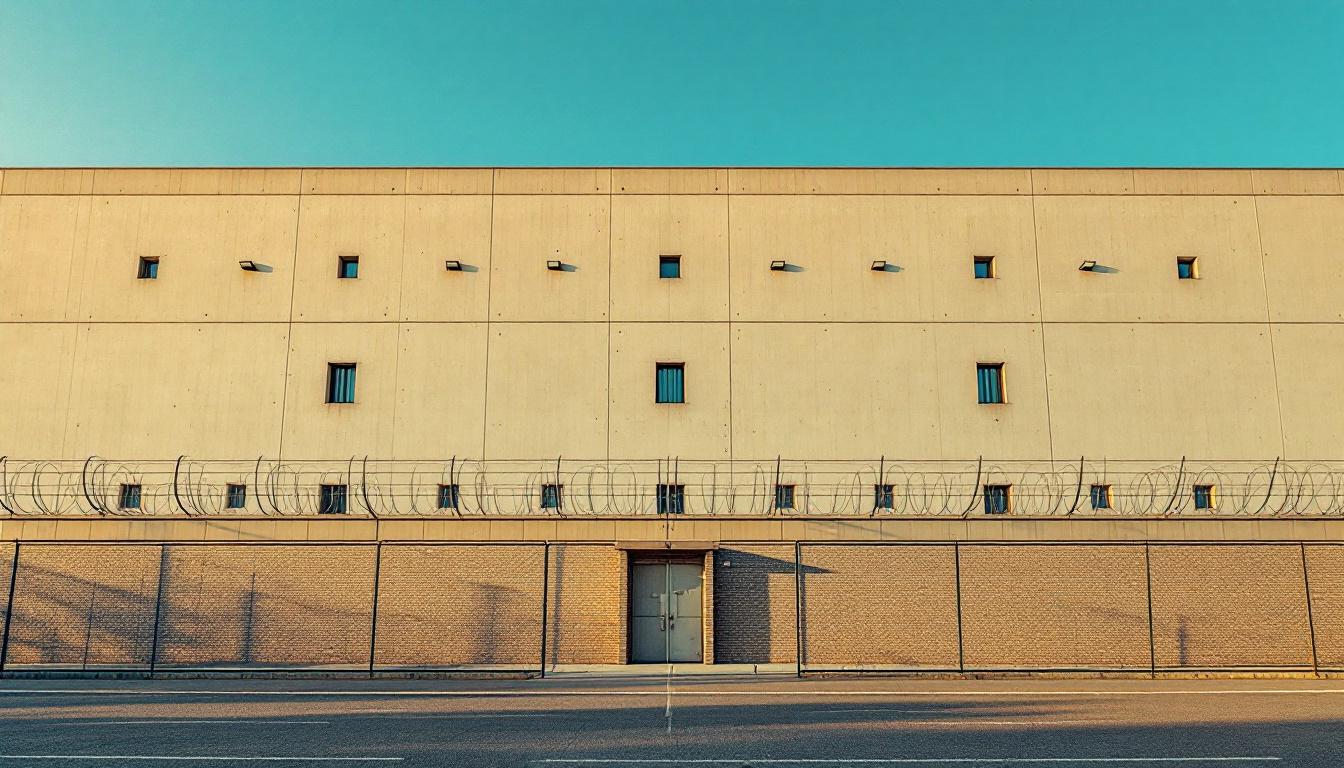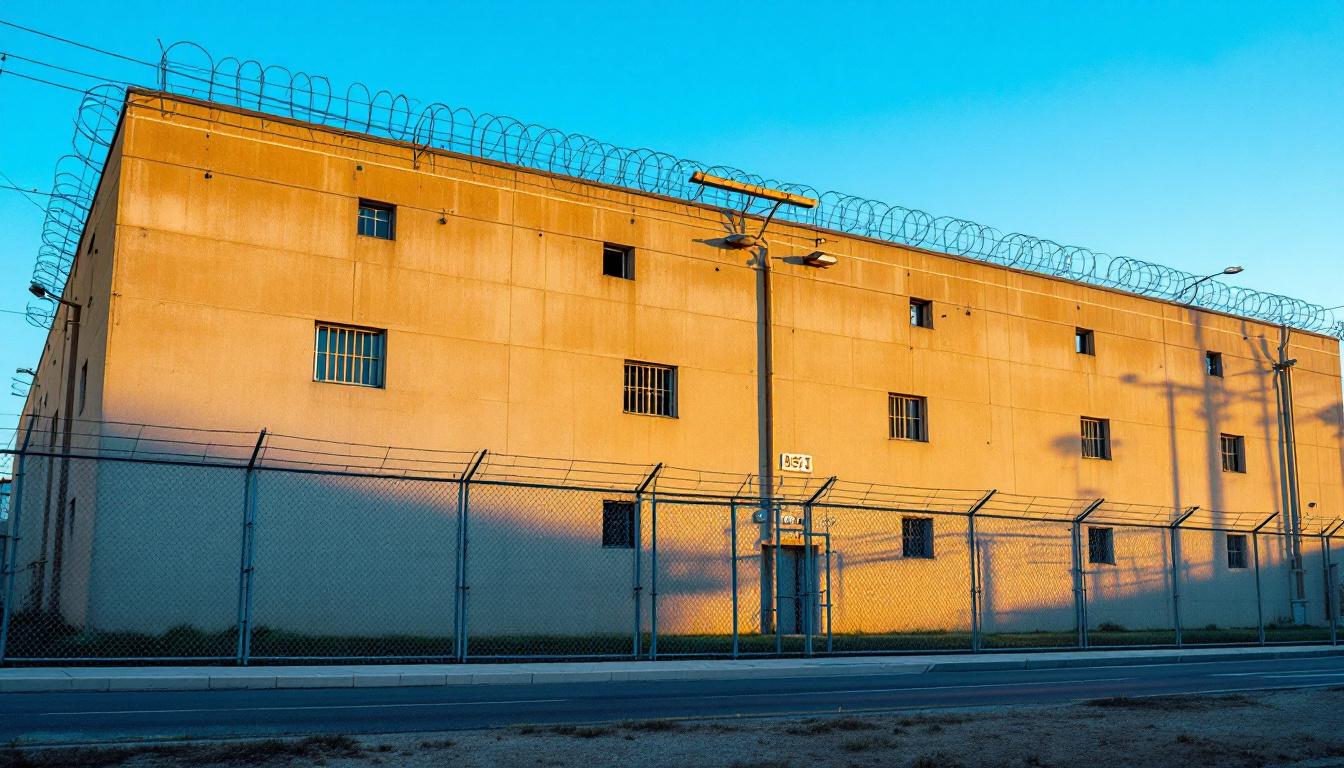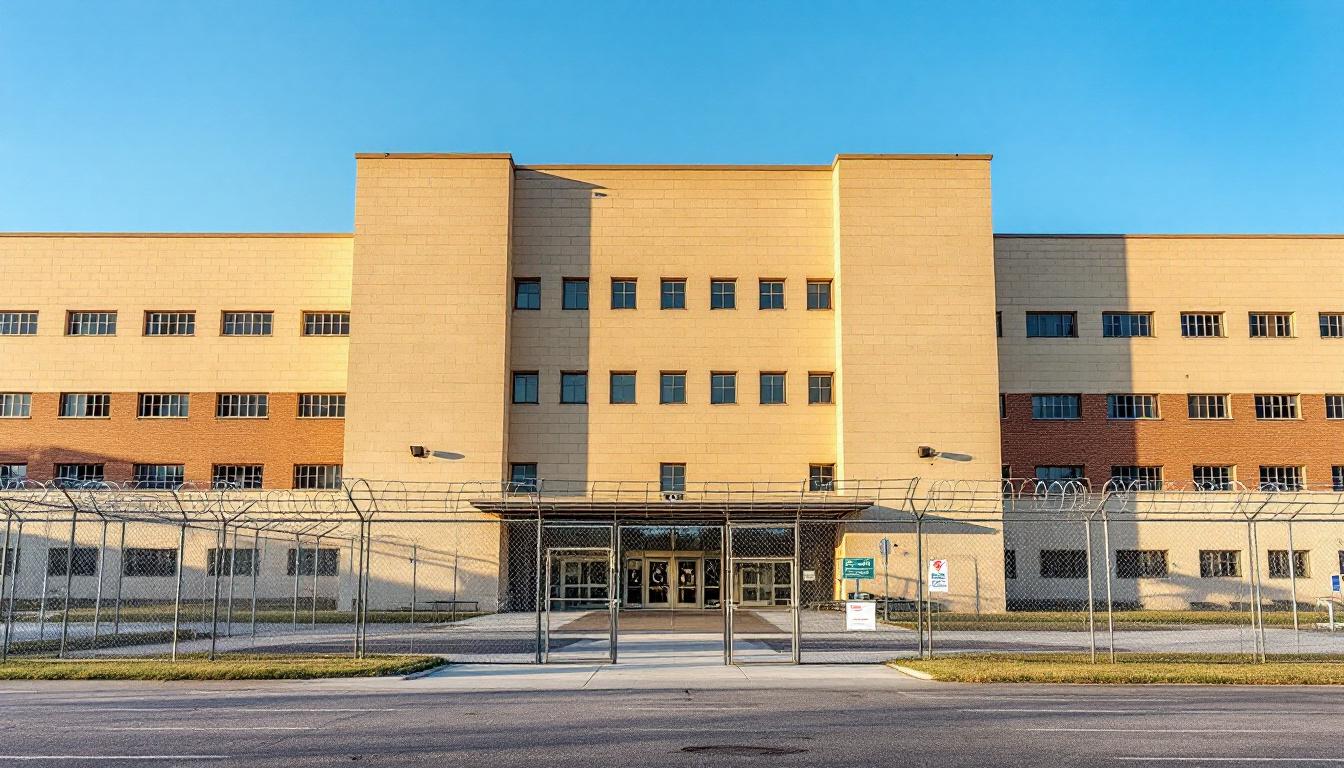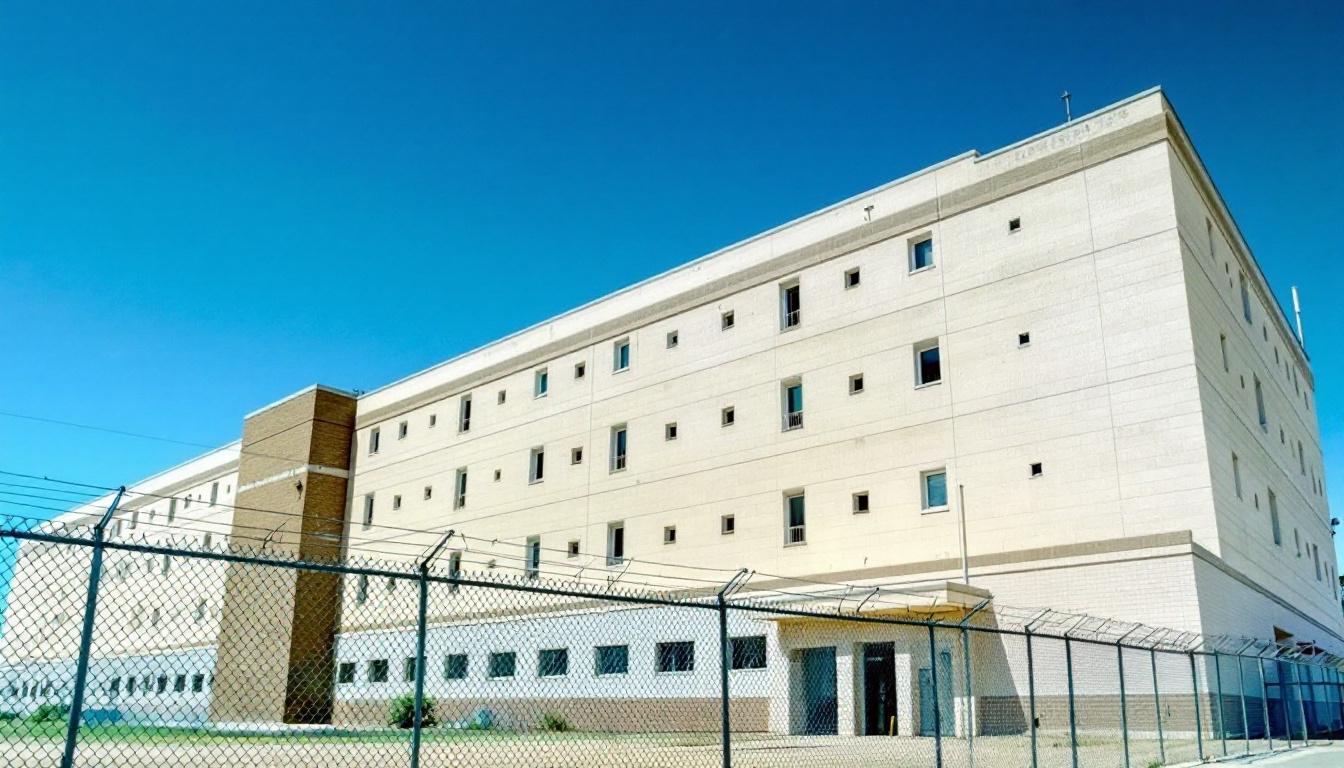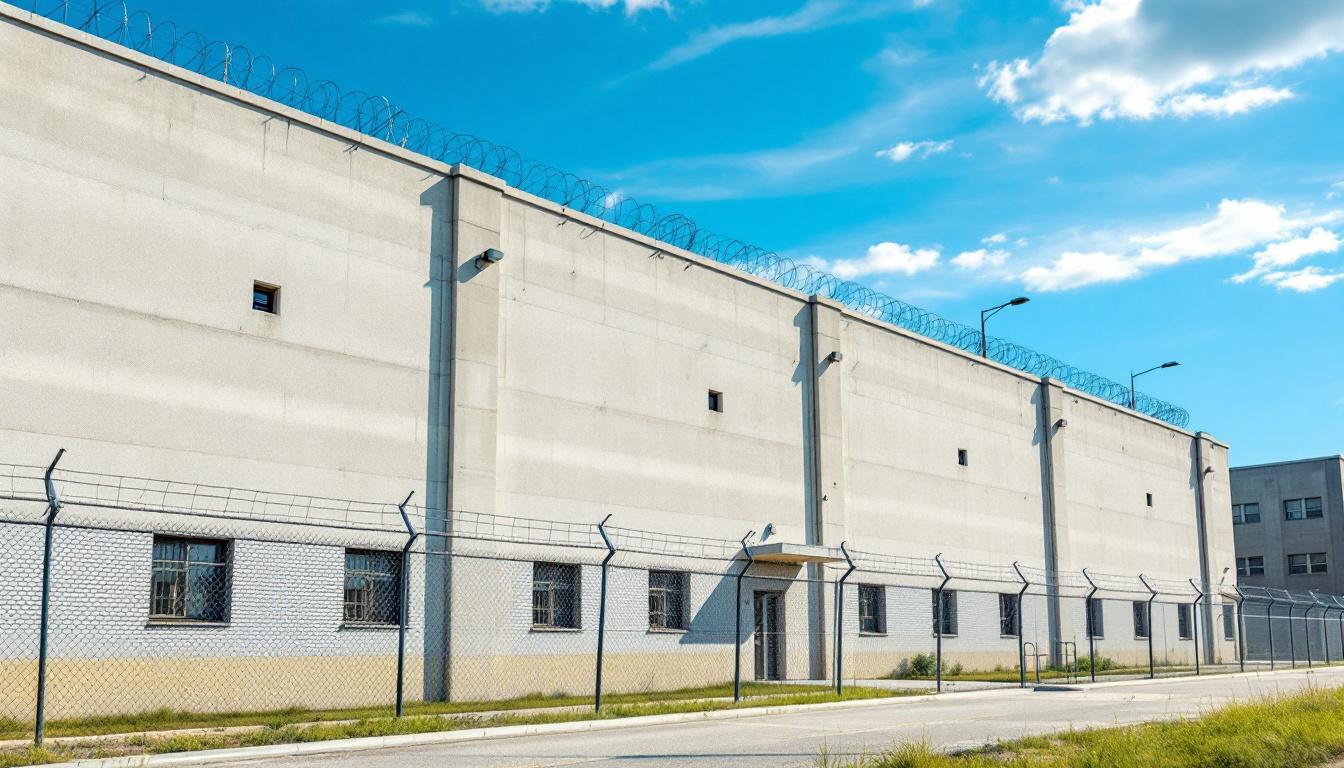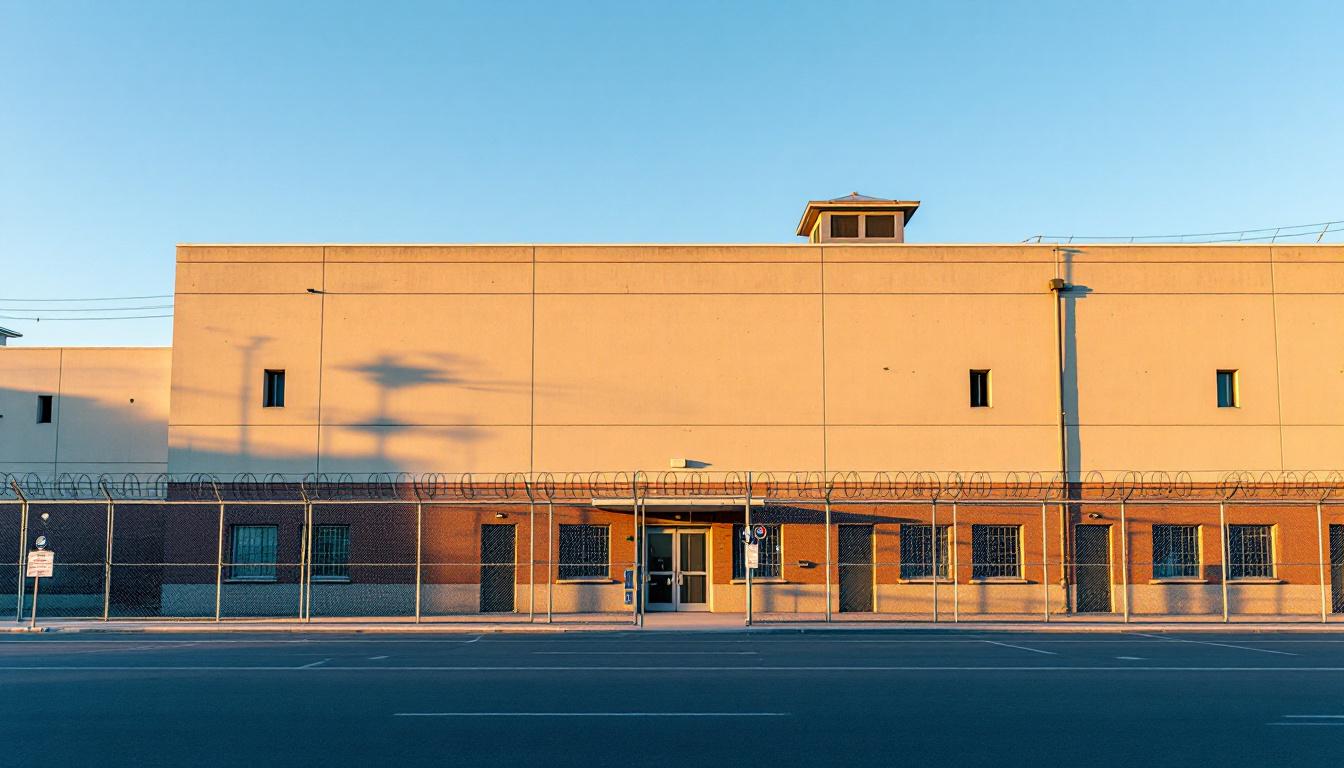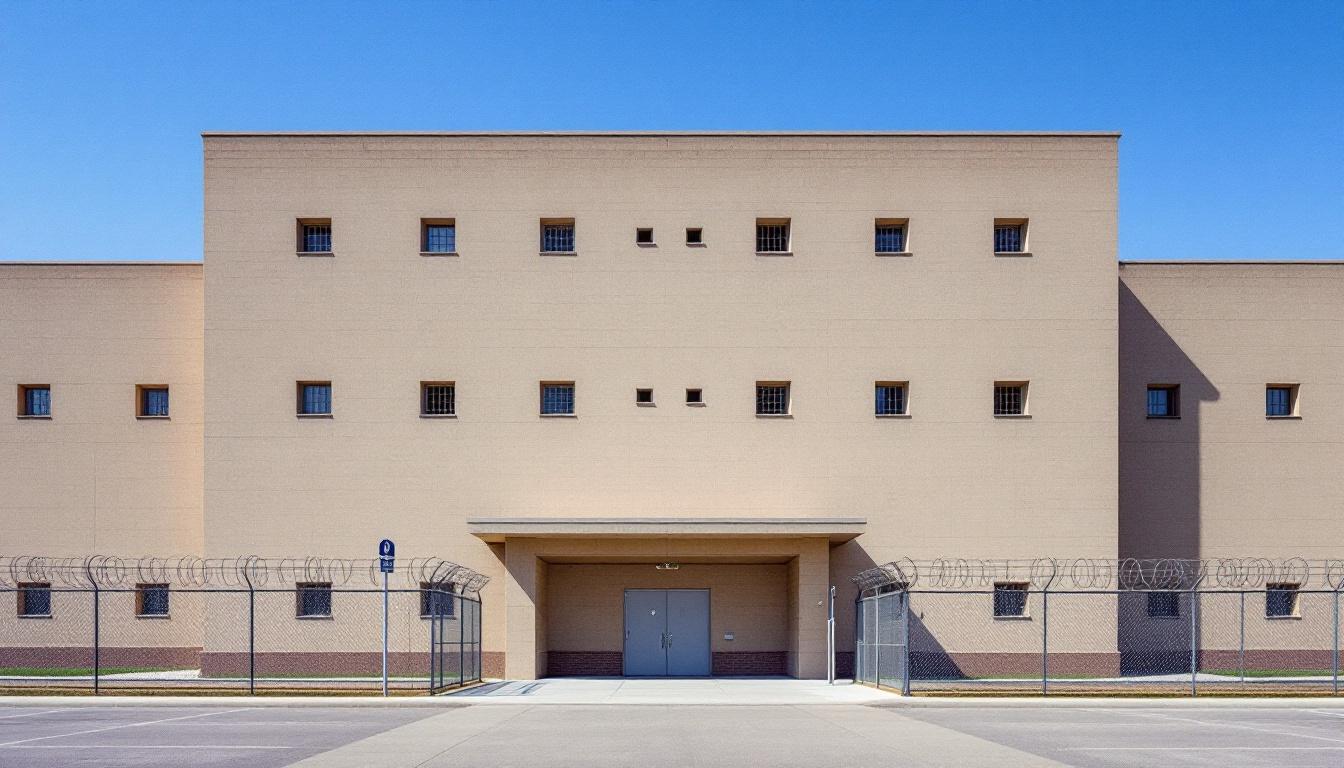
Quick Navigation
How to contact an inmate at Wright County Jail
This comprehensive guide will walk you through how to connect with an inmate at Wright County Jail. Follow the steps below to find an inmate and send letters and photos:
- Search for the inmate using our search tool below
- Create your account or log in to Penmate
- Write your message (up to 6,000 characters)
- Send instantly - inmates receive printed copies daily
Find an Inmate
Search for an inmate to start communicating today
Tip: You can search by first name, last name, or inmate ID number
To contact a person at Wright County Jail start by searching for the person on the official facility website. Perform a search by following these steps:
- Step 1: Enter their first name and last name into the search form and click "Search"
- Step 2: Locate their inmate record
- Step 3: Write down their Inmate ID and any housing information provided
Important! Be sure to enter the person's full name. Nicknames should not be used.
How to Send Messages to Inmates

You can use your phone or computer to send emails, letters, and photos to an inmate. Messages are sent electronically to inmate tablets or kiosks at the facility. If you would like to send a message, start by searching for an inmate at Wright County Jail.
Sending Photos and Postcards

A great way to send love and support to a loved one at Wright County Jail is to send photos and postcards. It only takes a few minutes to send photos from your phone and it makes a huge difference. You can also mail postcards with words of support and inspiration, or design your own postcard for special moments like birthdays and holidays.
Important! Be sure not to send any explicit photos or they may not be approved by the facility. You can also use a photo printing app like Penmate to make sure your photos are printed at the correct size (4x6 or 3x5) and are mailed according to the rules and regulations of Wright County Jail.
Frequently asked questions about Wright County Jail
-
How long does it take to deliver a message?
If you're sending an email message your letter is usually delivered within 24-48 hours. For messages sent via mail you should expect delivery within 3-7 days. All messages will need be approved by Wright County Jail.
-
How much does it cost to send a message to Wright County Jail?
You can send a message free using your phone or mail a message via USPS for the price of a $0.60 stamp and envelope. You can also purchase credits or e-stamps from services starting at $1.99.
-
What services can I use to contact an inmate at Wright County Jail?
Penmate
You can use Penmate to send letters and photos to an inmate from your phone. It's an easy way to stay in touch during your loved one's incarceration. Use the inmate locator to find an inmate's location and contact information, then you can send messages within a few minutes.
Securus messaging
Securus may be another option for communicating with an inmate at Wright County Jail. You can create a friends and family account and purchase credits to send messages. All messages will be reviewed and must be approved by the facility.
JPay
Some county jails and state prisons may support sending messages with JPay. You must register an account with the system, find your loved one, and purchase stamps to send messages. For some locations you can also attach photos.
Smart Jail Mail
You may also check if Smart Jail Mail is available at Wright County Jail. Smart Jail Mail is operated by Smart Communications and has contracted with some state and county jails. After purchasing credits, your messages and photos are sent to the facility, printed out, and then handed out to your loved one.
-
What is the mailing address of Wright County Jail?
Mailing address:
Wright County Jail
3800 Braddock Ave NE
Buffalo, MN 55313
Phone: (763) 682-7653Business hours:
- Monday: Open 24 hours
- Tuesday: Open 24 hours
- Wednesday: Open 24 hours
- Thursday: Open 24 hours
- Friday: Open 24 hours
- Saturday: Open 24 hours
- Sunday: Open 24 hours
-
What are the visiting hours at Wright County Jail?
Visiting hours at Wright County Jail vary by housing unit and security level. Generally, visits are scheduled on weekends and holidays, with some facilities offering weekday visits. Contact the facility directly at (763) 682-7653 or check their website for the current visiting schedule. Visits typically last 30-60 minutes and must be scheduled in advance.
-
What items are prohibited when sending mail to Wright County Jail?
Prohibited items typically include: cash, personal checks, stamps, stickers, glitter, glue, tape, staples, paperclips, polaroid photos, musical or blank greeting cards, hardcover books, magazines with staples, and any items containing metal or electronics. Only send letters on plain white paper with blue or black ink. Photos must be printed on regular photo paper (no Polaroids). Always check with Wright County Jail for their specific mail policies.
-
How do I send money to an inmate at Wright County Jail?
You can send money to an inmate at Wright County Jail through several methods: 1) Online using JPay, Access Corrections, or the facility's approved vendor, 2) Money orders mailed directly to the facility with the inmate's name and ID number, 3) Kiosks located in the facility lobby, or 4) Over the phone using a credit or debit card. Fees vary by method, typically ranging from $2.95 to $11.95 per transaction.
-
Can I schedule a video visit with an inmate at Wright County Jail?
Many facilities now offer video visitation as an alternative to in-person visits. At Wright County Jail, video visits may be available through services like Penmate, Securus Video Connect, GTL, or ICSolutions. Video visits typically cost $10-20 for 20-30 minutes and must be scheduled in advance. You'll need a computer or smartphone with a camera and reliable internet connection. Contact the facility for their specific video visitation policies and approved vendors.
-
What identification do I need to visit an inmate at Wright County Jail?
All visitors must present valid government-issued photo identification such as a driver's license, state ID, passport, or military ID. Minors must be accompanied by a parent or legal guardian who can provide the minor's birth certificate. Some facilities require visitors to be on the inmate's approved visitation list, which may require a background check. Contact Wright County Jail for specific ID requirements and visitor approval procedures.
-
How can I find out an inmate's release date?
To find an inmate's release date at Wright County Jail, you can: 1) Use the online inmate search tool if available, 2) Call the facility's records department, 3) Contact the inmate's case manager or counselor, or 4) Have the inmate provide this information during a call or visit. For privacy reasons, some facilities only release this information to immediate family members.
Facility Overview
Official Website

About Wright County Jail
Comprehensive support services and evidence-based programming form the foundation of Wright County Jail, MO’s approach to addressing the complex needs of individuals within the correctional system. This MO correctional facility operates with a clear focus on measurable outcomes, implementing structured interventions designed to reduce recidivism while maintaining community safety standards. Located in Hartville, the facility typically offers individuals services that may include substance abuse counseling, educational opportunities, and workforce preparation programs that align with regional employment demands across Missouri’s rural communities.
Operating within Missouri’s broader correctional framework, the county jail serves as a critical component in the state’s public safety infrastructure while emphasizing rehabilitation-focused programming. The facility generally maintains connections with local service providers and community organizations to ensure continuity of care upon release. Programs often include cognitive-behavioral interventions, life skills development, and family reunification support services designed to address underlying factors contributing to criminal behavior. These evidence-based approaches typically demonstrate positive outcomes in reducing repeat offenses while supporting successful community reintegration.
Wright County Jail’s commitment to both public safety and individual transformation reflects broader trends in modern corrections toward outcome-driven practices. The facility’s location in Hartville positions it to serve the specific needs of the regional population while maintaining standards consistent with state correctional guidelines. Through comprehensive assessment processes and individualized programming, the facility works to address the diverse challenges faced by those in custody, creating pathways toward positive behavioral change that benefit both participants and the broader community they will rejoin.
Programs & Services
Through a multifaceted approach to individual development, Wright County Jail typically provides an extensive array of opportunities designed to address the diverse needs of its population. The facility’s comprehensive programming philosophy recognizes that meaningful change occurs when individuals have access to educational advancement, practical skill development, and therapeutic support services that work synergistically to promote personal growth and successful community reintegration.
Educational opportunities often form the cornerstone of the facility’s offerings, with programs that may include basic literacy instruction, GED preparation, and continuing education courses tailored to various skill levels. Also available are vocational training initiatives that typically focus on marketable skills such as welding certification and other trade-based instruction, providing individuals with concrete pathways to employment upon release. These hands-on learning experiences often emphasize both technical proficiency and workplace readiness, ensuring participants develop not dedicated specific skills but also the professional habits necessary for sustained employment success.
Therapeutic and support services typically complement the educational and vocational components through comprehensive treatment programming. Substance abuse treatment opportunities may address addiction issues through evidence-based approaches, while dual diagnosis treatment often serves individuals managing both mental health conditions and substance use disorders. Also offered are creative outlets such as creative writing programs, which provide individuals with constructive means of self-expression and emotional processing. These varied therapeutic interventions typically work together to address the underlying factors that may contribute to criminal behavior while fostering personal insight and emotional resilience.
Daily Life & Visitation
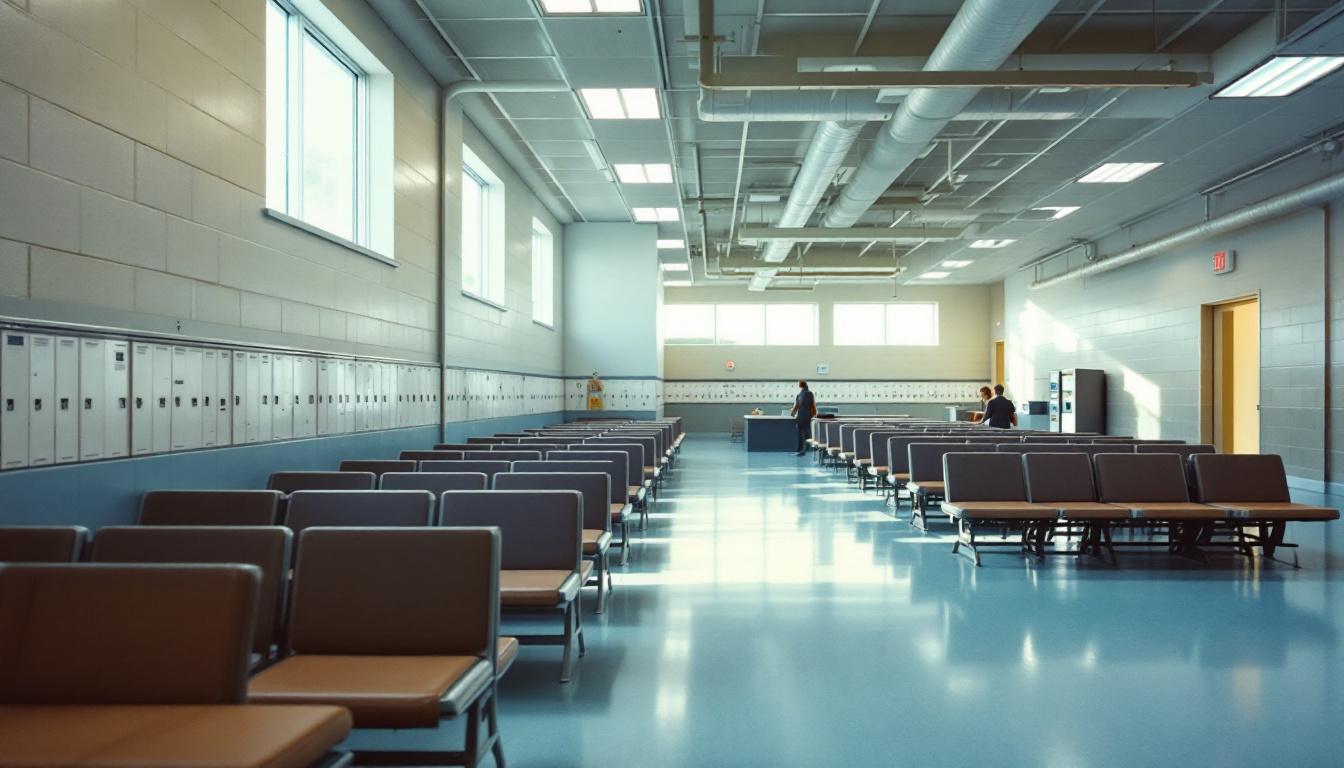
The rhythmic sound of meal trays being distributed throughout the housing units marks one of several predictable moments that currently structure each day for individuals at Wright County Jail. The facility continues to operate on a schedule that typically begins with early morning wake-up calls, followed by headcounts, meal service, and various programmed activities that may offer structure and routine throughout the day. Generally, individuals can expect their days to include designated times for personal hygiene, cleaning responsibilities, and periods of recreation, though the specific timing often varies based on housing unit assignments and security classifications.
Living accommodations within the facility typically consist of shared cells or dormitory-style housing units, where individuals generally have access to basic amenities including bedding, personal storage space, and bathroom facilities. The commissary system usually allows individuals to purchase approved personal items, snacks, and hygiene products, provided they have funds available in their accounts. However, personal property is generally limited to essential items and must comply with facility security regulations, with clothing and personal belongings often stored according to specific guidelines that help maintain safety and order within the housing areas.
Also available to many individuals are work assignments that may include kitchen duties, laundry services, or facility maintenance tasks, which often provide structure and may offer small compensation. Recreational opportunities typically include access to television viewing areas, reading materials, and scheduled outdoor time when weather and security conditions permit. Family connections continue to be maintained through scheduled visitation periods and telephone privileges, though these communications are generally monitored and subject to facility policies. However, many individuals find that maintaining contact with loved ones and participating in available programming helps provide stability during their time at the facility.
Ready to Connect?
Start communicating with your loved one today
Search for an Inmate
